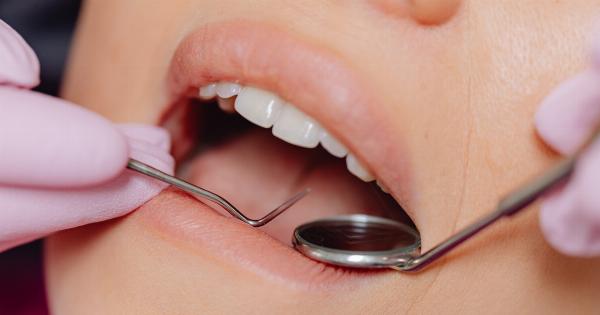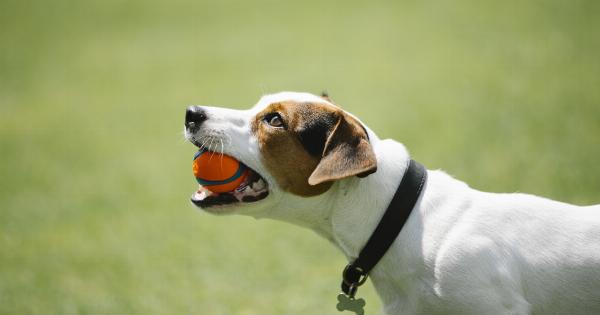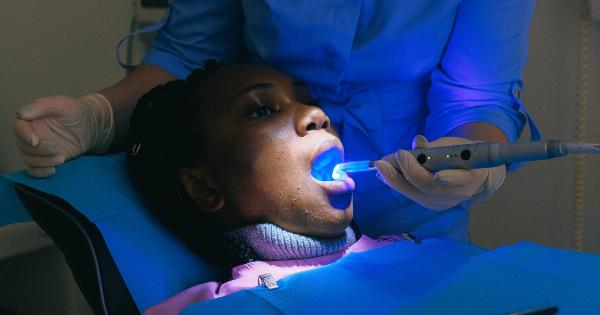As dog owners, we strive to keep our furry friends healthy and happy. While we focus on their diet, exercise, and grooming routines, their oral health often gets overlooked.
Taking care of your dog’s teeth and gums is just as important as other aspects of their well-being. Poor oral hygiene can lead to a range of dental problems, including gum disease, tooth decay, and even systemic infections affecting vital organs.
The Importance of Dog Dental Care
Just like us, dogs are also prone to dental issues such as plaque buildup, tartar formation, and gum disease. Ignoring these problems can lead to pain, discomfort, and even tooth loss for your furry companion.
Moreover, bacteria in the mouth can enter the bloodstream, causing infections in other parts of the body and potentially affecting the heart, liver, and kidneys.
Regular dental care for your dog is essential to prevent these issues and maintain their overall health and well-being. By implementing a few simple tips and tricks, you can ensure your dog’s oral health remains in top shape.
1. Brush Your Dog’s Teeth Regularly
Regular brushing is the foundation of good oral hygiene for dogs. It helps remove plaque and prevent tartar buildup. Start by introducing the toothbrush slowly, allowing your dog to get familiar with the process.
Use a toothbrush and toothpaste specifically designed for dogs. Human toothbrushes and toothpaste can be harmful to your pet’s tummy.
Begin by gently lifting your dog’s lips and brushing the outside surfaces of their teeth in circular motions. Gradually increase the duration and frequency of brushing sessions.
Aim for at least three times a week, but ideally, you should brush your dog’s teeth daily.
If your dog resists brushing, consult your veterinarian for alternative solutions, such as dental wipes, dental sprays, or dental chews.
2. Provide Appropriate Dental Chews and Toys
Chewing is a natural behavior for dogs, and it can help maintain their dental health. Providing appropriate chew toys and dental chews not only entertains your dog but also helps remove plaque and tartar from their teeth.
Choose dental chews that are specifically designed to improve oral health. These chews are usually made with ridges or textured surfaces that can reach between the teeth and massage the gums.
Avoid giving your dog hard objects like bones or antlers, as these can lead to broken teeth.
Remember to supervise your dog while they chew to prevent choking or swallowing large pieces.
3. Consider Dental Treats and Water Additives
In addition to dental chews, there are also dental treats and water additives available in the market. These products are formulated to promote oral hygiene by reducing plaque and combating bad breath.
Look for treats that have a proven track record and are recommended by veterinarians.
Water additives are an easy and convenient way to maintain your dog’s oral health. Simply add the recommended amount to their drinking water, and it will help fight plaque and freshen their breath during regular hydration.
4. Schedule Regular Veterinary Dental Check-ups
While home care is crucial, professional dental check-ups are equally important for your dog’s oral health. Regular dental examinations allow your veterinarian to detect any potential issues early on and provide appropriate treatments.
Your vet may perform a comprehensive dental cleaning, including scaling and polishing, to remove stubborn tartar buildup. They may also perform dental X-rays to identify hidden dental problems beneath the gum line.
Based on your dog’s specific needs, your veterinarian will recommend a suitable dental care routine and advise you on any additional treatments.
5. Choose the Right Diet for Dental Health
A well-balanced diet plays a significant role in maintaining your dog’s oral health. Providing them with high-quality, nutrient-rich food not only benefits their overall well-being but also supports their dental health.
Consider incorporating dry kibble or dental-specific dog food into their diet. These types of food have a crunchy texture that can help scrape away plaque and prevent tartar formation.
Additionally, some brands offer specially-formulated diets that actively promote good oral health and reduce the risk of dental problems.
Remember to consult your veterinarian to find the most suitable diet for your dog’s specific needs.
6. Teach Your Dog to Tolerate Mouth Handling
It’s essential to get your dog accustomed to mouth handling from an early age. By positively associating mouth touching and examination, you can make future dental care easier for both you and your dog.
Start by gently touching your dog’s lips, then gradually progress to lifting their gums and checking their teeth. Offer praise, rewards, and plenty of patience throughout the process.
This exercise will help your dog become comfortable with routine mouth inspections and make future oral care much smoother.
7. Be Aware of Warning Signs
A vigilant dog owner can often identify early signs of dental problems. Keep an eye out for the following warning signs that may indicate oral health issues:.
- Bad breath
- Difficulty chewing
- Excessive drooling
- Loss of appetite
- Swollen or bleeding gums
- Yellow or brown deposits on teeth
- Loose teeth
- Behavioral changes
If you notice any of these signs, consult your veterinarian promptly for proper diagnosis and treatment.
8. Avoid Harmful Foods and Substances
Some foods and substances can be detrimental to your dog’s oral health. Avoid feeding them sugary foods, as bacteria in the mouth can convert sugar into acids that damage teeth and gums.
Additionally, foods that are too hard, such as ice cubes or bones, can cause broken teeth or oral injuries.
Keep harmful substances like cleaning products, human toothpaste, and medications out of your dog’s reach. Ingestion of these substances can lead to serious health issues.
9. Use Dental Rinses or Gels
If your dog is prone to developing dental issues, your veterinarian may recommend dental rinses or gels to incorporate into their oral care routine. These products help reduce plaque formation and maintain healthy gums.
Follow your veterinarian’s instructions on how to apply the rinse or gel, and use them in conjunction with regular brushing and dental check-ups.
10. Stay Consistent and Patient
Ensuring your dog’s oral health requires consistency and patience. Implementing a regular dental care routine may take time for your dog to get accustomed to.
Stay patient, offer positive reinforcement, and remain consistent with their oral care regimen.
Remember that good oral hygiene benefits your dog’s overall health and can potentially extend their lifespan.
By following these tips and tricks, you can protect your furry friend from oral health issues and provide them with a happy and healthy life.




























